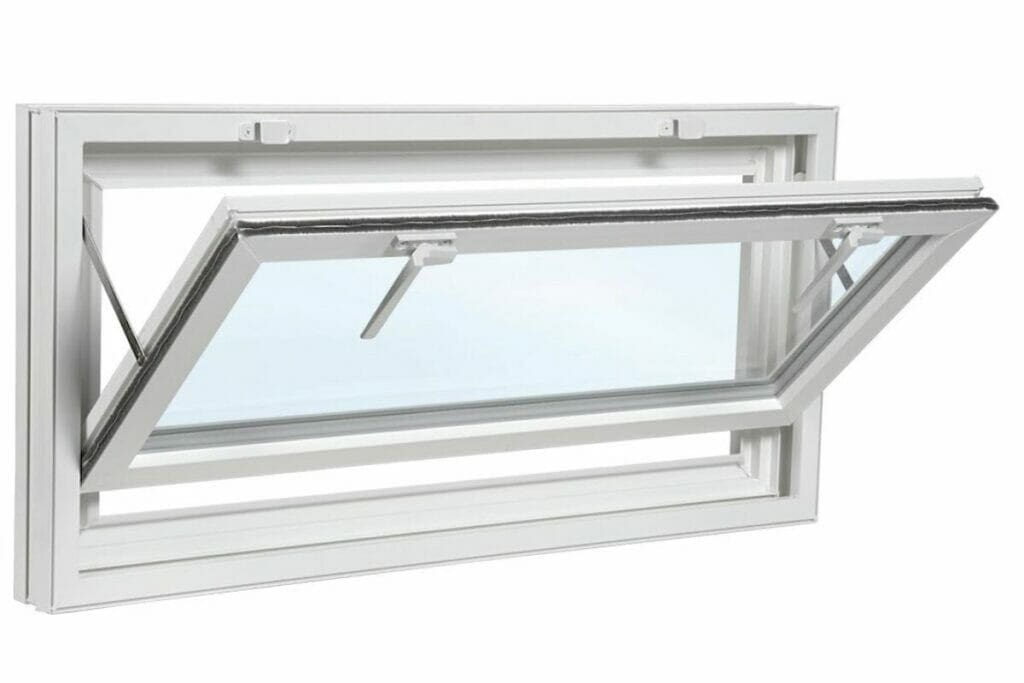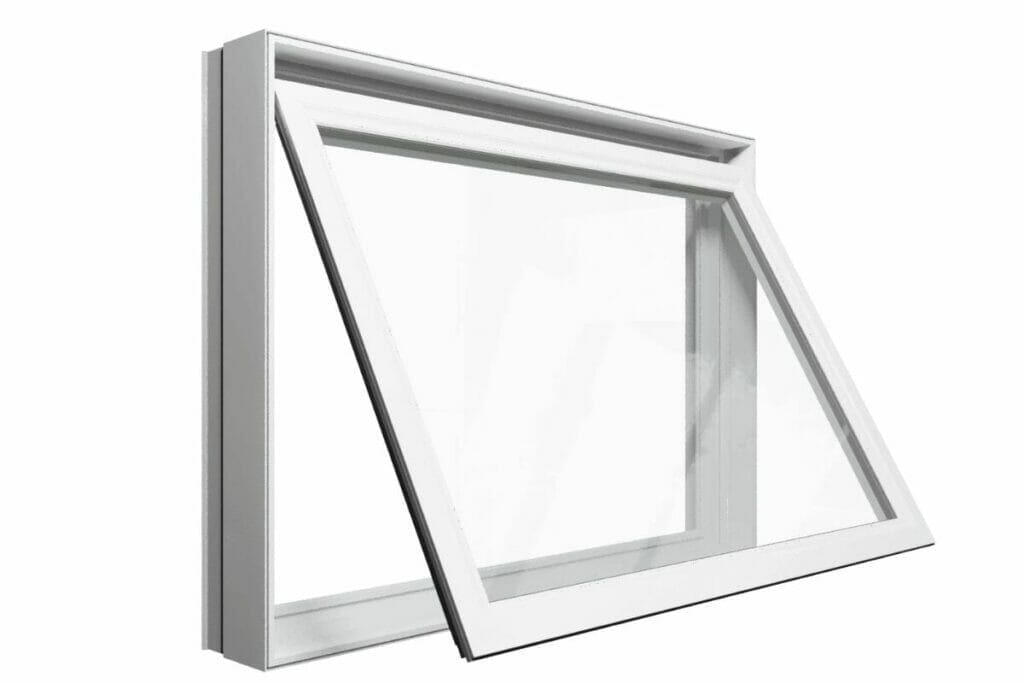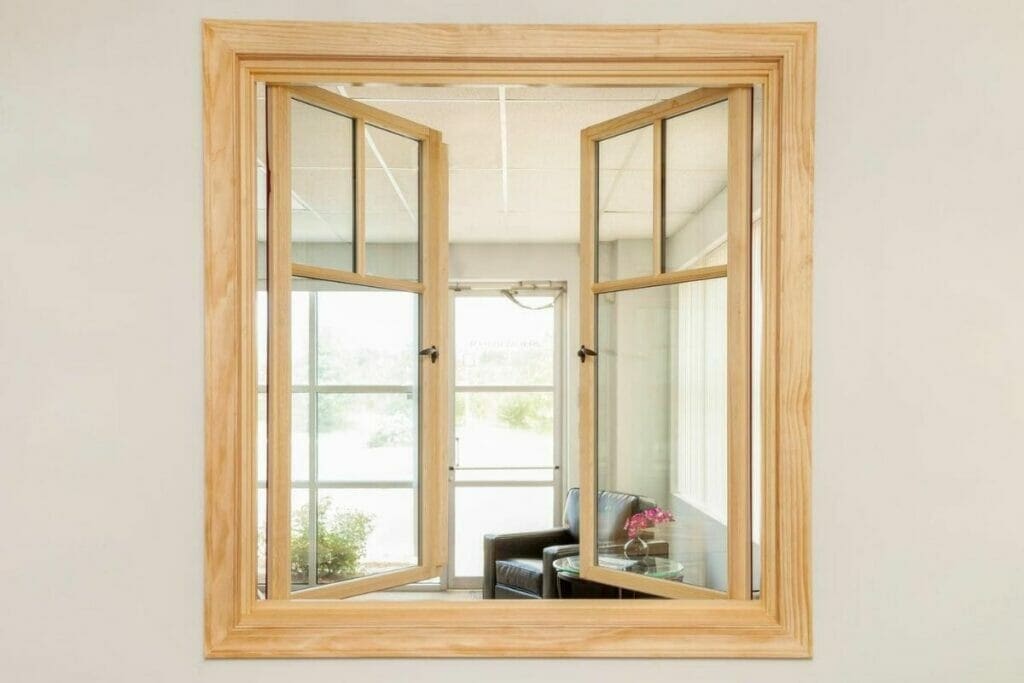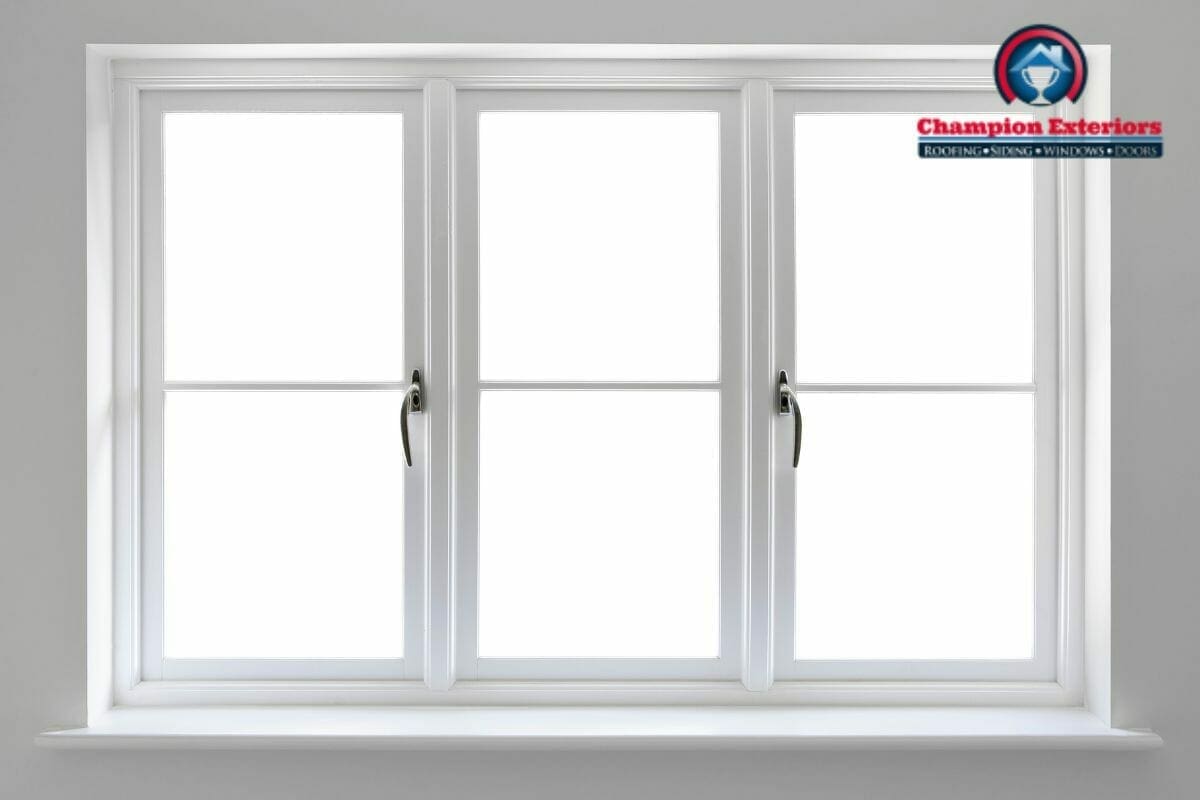Are you considering updating the windows in your home? Look no further than casement windows! With their versatile design, casement windows are an excellent choice if you want to improve your home’s energy efficiency, security, and ventilation while adding style and elegance to a property.
In this blog, we’ll explore six types of casement windows you can use to transform your home. From traditional to modern, there is a casement window option for every taste and budget. So, let’s dive in and discover the many benefits of casement windows and how they can enhance your home.
Understanding Casement Windows
Casement windows are a popular style of window that is hinged on the side and swings outwards, usually operated with a crank handle. These windows offer a range of benefits, including excellent ventilation and energy efficiency. Casement windows can be made from various materials, including wood, vinyl, and aluminum, and can be customized to fit the specific needs of any home or building.
They are also available in different shapes and sizes, making them versatile for any style. To maintain and operate casement windows properly, it is important to keep them clean and lubricated and inspect the weatherstripping regularly to ensure a tight seal.
How Casement Windows Work
Casement windows function using a straightforward yet effective mechanism that enables them to pivot open and shut on hinges that are located on the side of the window frame. The window sash, which encases the glass panes, is linked to a frame via hinges and is maneuvered by turning a crank handle. When the handle is turned, a gear mechanism is activated that shifts the sash either outward or inward, depending on the handle’s direction.
When the sash is fully closed, it rests flat against the frame, generating a tight seal that minimizes air leaks and enhances energy efficiency. Due to their simple and efficient design, casement windows are a favored choice among homeowners, offering top-notch ventilation, security, and energy efficiency.
5 Types Of Casement Windows To Consider
Before installing casement windows in your home or office, you need to compare the different types, as it will help you make a decision that benefits you for years to come.
#1 Traditional Casement Windows
Traditional casement windows are a timeless and versatile window style that has stood the test of time. These windows feature a single sash that is hinged on one side and swings outward, operated by a hand crank or lever. They offer many benefits to homeowners, including excellent ventilation, energy efficiency, and security. Traditional casement windows are also highly customizable, with various materials, finishes, and hardware options available to match any home style and decor. Whether installed in a classic, historic home, or a modern one, traditional casement windows are sure to add charm, character, and functionality to any living space.
2# Push-Out Casement Windows
Push-out casement windows are a popular and modern take on the traditional casement window style. To open these windows, you turn a handle to push the sash outward, providing a sleek and unobstructed look that complements contemporary and modern home designs. Push-out casement windows offer excellent ventilation and can be fully opened to allow fresh air into a home.
With a range of materials, finishes, and hardware options available, push-out casement windows can be customized to suit any home’s style and design.
#3 Bottom-Hinge Casement Windows

Bottom-hinged casement windows, also known as hopper windows, function by being hinged at the bottom and opening inward. These windows are usually smaller than other types of casement windows and are typically installed in areas where wall space is limited, such as basements. The inward-opening design of hopper windows makes them an ideal option for rooms that require privacy, as they can be adjusted to let fresh air in without revealing the room’s interior.
To operate, hopper windows use a straightforward latch or locking mechanism that holds the window in place when shut, and are opened by a crank.
#4 Top-Hinge Casement Windows

Top-hinged casement windows, also known as awning windows, are a type of casement window that is hinged at the top and open outward. This design allows them to be an excellent choice for areas that need constant ventilation, such as bathrooms and kitchens. They also provide protection from rain while still allowing fresh air to enter a room. Awning windows are typically wider than they are tall and are operated through a crank on the bottom.
5# French Casement Windows

French casement windows are a type of casement window that consists of two separate sashes that open outward from the center. Unlike traditional casement windows with a single sash that opens outward, French ones have no center mullion, providing an unobstructed view and allowing maximum airflow.
These windows can be a beautiful and practical addition to any home, as they provide a classic and elegant look while offering excellent ventilation and natural light. Each sash of a French casement window is typically fitted with a simple crank handle that allows for easy and smooth opening and closing.
Advantages Of Casement Windows
Like all other types of windows, casement windows have many advantages to offer home and business owners. In an effort to help you make the right choice, we have shortlisted common advantages that come with casement windows.
Excellent Ventilation And Airflow
Casement windows are ideal for homeowners who want to maximize the fresh air and natural light entering their homes. These windows open fully, providing excellent ventilation and airflow. This feature can help to regulate indoor temperature and improve air quality, creating a comfortable and healthy living environment.
High-Level Security
Casement windows are also known for their high level of security. Their design provides a tight seal around the frame, making it difficult for intruders to force them open. Additionally, they often feature multiple locking points around the frame, making them even more secure and providing homeowners with peace of mind.
Low Maintenance And Easy To Clean
These windows generally require a low level of maintenance and are easy to clean. Having fewer moving parts than other types of windows, casement windows require less repair over time. Additionally, they often feature simple designs, making them easy to clean and maintain while helping homeowners save time and effort.
Versatile
Casement windows are available in a range of materials, including wood, vinyl, and aluminum. This makes them a versatile option for homeowners looking to customize their windows in order to increase the curb appeal of their home.
Energy-Efficient
With a tight seal that reduces air leaks and helps to maintain a comfortable indoor temperature, casement windows come with energy-efficient features. This results in lower energy bills and a reduced carbon footprint, making them an eco-friendly choice for homeowners.
Better Sound Insulation
Casement windows also offer better sound insulation than other types of windows. Their design provides a tighter seal around the frame, reducing the amount of outside noise entering a home. This can result in a quieter and more peaceful living environment.
Disadvantages Of Casement Windows
While casement windows have many advantages, they also come with some disadvantages that can be problematic. Here is a list of them to help you make the right decisions:
Not Ideal For Extreme Weather Conditions:
Casement windows don’t last as long as they promise in areas with extreme weather conditions. Frequent storms, heavy rain, and snowfall can compromise the structural integrity of these windows and potentially cause damage. Since these windows typically hang outside the home, they experience harsh weather conditions and are more vulnerable to damage.
More Expensive Than Other Windows:
Another disadvantage of casement windows is that they can be more expensive than other types of windows due to their complex design and number of components. Additionally, they may require specialized installation, which can increase the overall cost.
Difficult To Repair:
Casement windows have a complex design that includes multiple locking points, hinges, and crank handles. If any of these components become damaged, repairing them can be difficult and costly. This can be a disadvantage for homeowners who want windows that are easy to maintain and repair.
Limits Furniture Placement:
The outward swing of casement windows can be a disadvantage for homeowners who want to maximize their interior space or exterior landscaping options. The window’s sash pops out, limiting furniture placement near the window if it’s a hopper window, and restricting exterior landscaping options if it’s another type of casement window. This can be an important consideration for homeowners who have limited space and want to maximize their use of it.
Get Professional Assistance And Replace Your Old Casement Windows Today!
If you’re ready to add to the aesthetic appeal of your home while making it more energy efficient and providing it with better lighting, consider installing casement windows. Hire our expert team at Champion Exteriors, who handles all window installation projects with expert care. Call us today at (609) 845-3576 to discuss window options for your home, and schedule a window installation or replacement.


